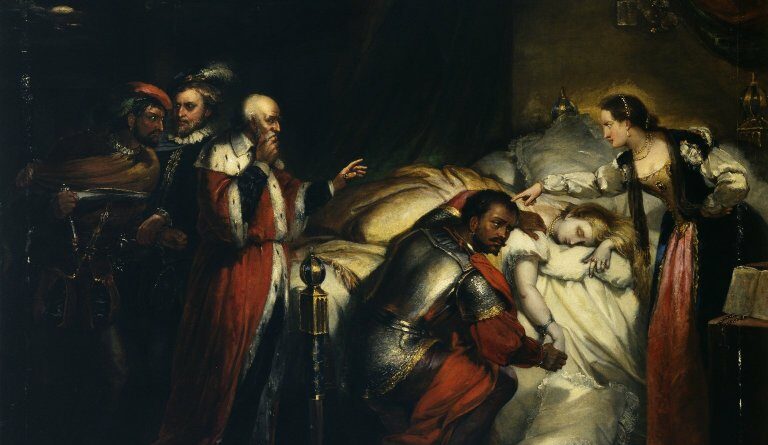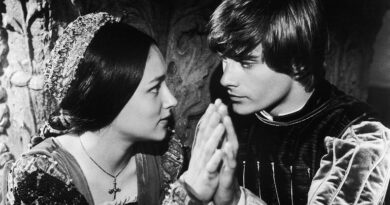Shakespeare’s use of Irony in Othello
Shakespeare’s use of irony is very clear in Othello as was in his other literary works. In this particular play, Shakespeare employs the use of three kinds of irony. These include verbal, situational and dramatic irony. Verbal irony is a situation where a character says words that are in contrast to that character’s intention. Situational irony is when a given action of a character is in contrast to the characters actual intentions. Dramatic irony occurs when the audience knows something about the character that the character does not seem to know (Colebrook 45). Shakespeare has used too much of this to make Othello the tragedy it is.
An Instance of verbal irony is like when Lago incriminates Cassio of having an affair with Desdemona, the wife of Othello. Lago says “I cannot think it that he would steal away so guilty-like (Shakespeare 56).” Lago is determined to make Othello jealous by making him believe that Cassio is having an affair with Desdemona. Most of Lago’s statements are meant to have Othello believe how Cassio is evil which the exact opposite of what he is is. Lago is careful though not to mention Cassio’s name but only utters statements that Othello interprets based on his own understanding. The dramatic irony that unfolds here is that Othello is made to believe what is actually not true. The actual enemy here is Lago but Othello does not seem to see this despite Desdemona’s efforts to make him see. The main aim of Lago is to remove Cassio in his place, but instead, Cassio is promoted to a higher position sabotaging Lago’s plan (Shakespeare 78).
Modern connection
There are many instances of irony in this play, but the strongest which revolves on the main theme of jealousy is “O, beware, my lord, of jealousy! It is the green-eyed monster, which doth mock the meat it feeds on (Shakespeare 67).” This is probably the phrase that really brings out the irony in this play. The main reason why Lago was telling all those lies about Cassio and Desdemona was because of jealousy. Lago is so jealous of Cassio and so bent on getting the place in the army that Cassio holds. Lago is jealous that Othello could promote a younger man to a higher level than him. He thus plans to use Rodrigo a rich man who Desdemona, the wife of Othello had turned down his hand in marriage. Othello thinks that Lago is loyal to him but in actual sense he is not. Lago tries to cause a rift in everyone’s life while pretending to be a very royal soldier. He is only bent at achieving his own end inspite of anyone. He ends up killing his wife who she believes was against his plans. This was before Lago had used his wife to betray Desdemona, who was her friend unknowingly. He had her pick Desdemona’s handkerchief which she had received from Othello as a present. Lago later uses this handkerchief to implicate Cassio convincing Othello that Desdemona was actually having an affair. He also convinces Rodrigo to kill Cassio, but he eventually kills Rodrigo himself when the attempt to kill Cassio fails. He kills Rodrigo of who they were plotting together since Cassio discovers that it was Rodrigo who had attacked him. That could have been detrimental to Lago’s plans.
Othello’s dramatic irony can be related to Forrest Gump, an American romantic comedy that has elements of drama in it. Forrest Gump, the main character is unaware of the historical significance of the various scenarios as well as the characters (Ebert 234). The audience though knows all this and is a step ahead of him. They thus watch in anticipation to see what his moves would be.
Personal connection
In relation to Shakespeare, I have learned that irony is not only inherent in the characters utterances, but also in the very actions of the characters. The plot of a work and the relation of the characters bring out the literary style of dramatic irony. Literary dramatic irony is according to me very effective in holding on to the attention of the audience. This is evident with the success of both Othello and Forrest Gump.
Works cited
Colebrook, Claire. Irony. London: Routledge, 2004. Print.
Ebert, Roger. Roger Ebert’s Four Star Reviews—1967-2007. Kansas City: Andrews McMeel Publishing, 2008. Print.
Shakespeare, William. Othello; The RSC Shakespeare. (Ed). Jonathan bate and Eric Rasmussen. New York: Palgrave Macmillan, 2009. Print.




